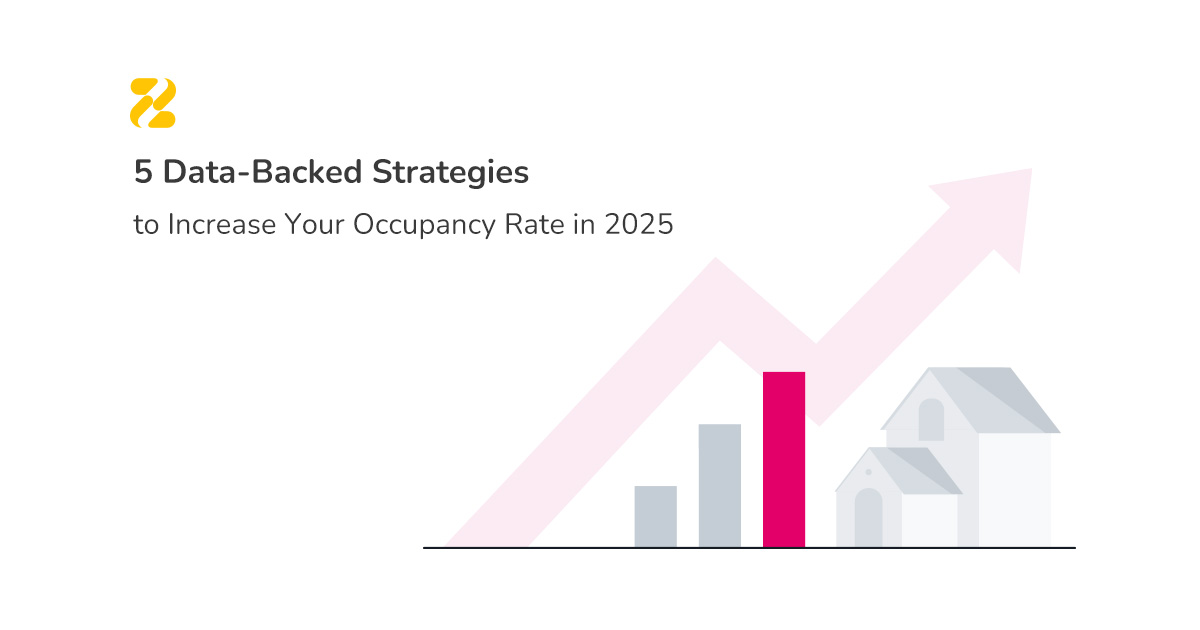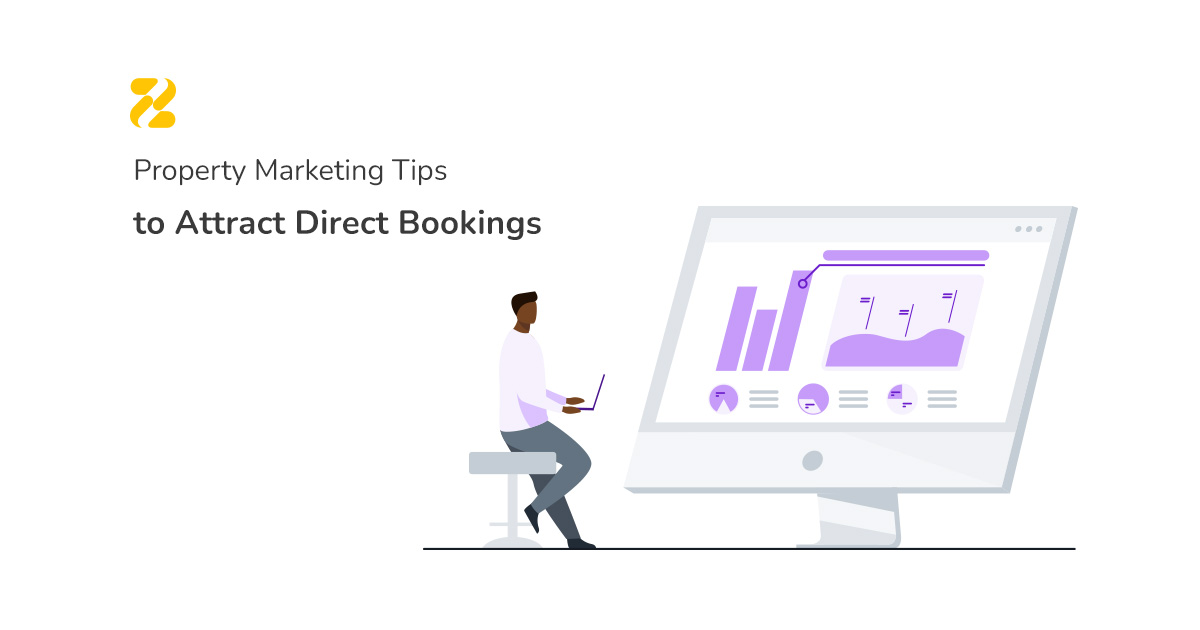‘Success is not measured by what you do compared to what somebody else does. Success is measured by what you do compared to what you are capable of doing.’ Zig Ziglar
How do you tell if your company is doing well? How do you measure the success of your business? How do you work out if you are on the right track and have not lost focus on your goals?
These are the essential questions all property managers must have crystal clear answers for. Key Performance Indicators (KPIs) are the golden formulas which can help you have a vivid perspective of where your business is headed and manage your company’s performance effectively towards its objectives. It is, therefore, crucial to understand which property management Key Performance Indicators are most effective.
Table of Contents
What Are Key Performance Indicators (KPIs)?
KPIs are fundamental measures and metrics demonstrating how well a business performs.
KPIs can enhance your business’s efficiency by clarifying and communicating your goals and focus points to everyone in the company and closing the spaces for misunderstandings and incongruencies.
Why Do Property Management Key Performance Indicators Matter?
- Profitability
Property management Key Performance Indicators determine the most profitable areas of the business. They also find where your profit is leaking away.
- Transparency
KPIs are handy when it comes to preparing homeowners’ reports.
- Competitiveness
Being aware of your strengths and weaknesses helps your property management company stay viable in the highly competitive hospitality market.
- Problem Spotting
KPIs help you cut inefficiencies, eliminate cumbersome procedures, and discover areas of improvement.
- Tracking Progress
You can measure your progress towards achieving your goals and examine the outcomes of your business plans with the quantitative proof that KPIs provide.
- Decision Making
To make informed decisions, you need accurate information. KPIs can indicate when is the right time to grow and build more revenue.
- Clarification
Communicating the business goals and performance expectations at all company levels will close learning gaps and keep all the crew on the same page.
- Motivation
As KPIs engage employees with the company objectives, they will show better performance due to measurable standards.
Which Property Management KPIs Matter the Most?
With countless KPIs out there, it can get overwhelming for property management companies to decide on the KPIs they should track.
All property management companies do a similar job. However, no two short–term rental businesses are the same. They have different operations, goals and benchmarks for measuring their success. As a result, they must pick different KPIs and track them as a part of their routine.
Based on their business’s size, type of guests, niche market, the amenities and services they offer and their vision, property management companies must create a list of specific KPIs and keep track of them regularly.
Short-term rental managers must ensure that their chosen KPIs are achievable, measurable, realistic, relevant and time-bound.
We have compiled a rundown of the most common property management key performance indicators as a starting point for you to tailor-design your own success metrics.
1. Occupancy Rates
Calculating your occupancy rate and comparing it with the average occupancy rate in the market can help you find out where you are standing.
Suppose your occupancy rate is not much satisfying compared to the market you serve. In that case, you must pinpoint the inefficiencies in your strategies and ensure you have done everything to maximise the occupancy rate across all your properties.
2. Revenue Growth
Set a revenue growth target and try to achieve it. Determine if your revenue rises sufficiently yearly, as an increased revenue translates to business growth and prosperity.
If your revenue curve is flat over a few years, you need to scrutinise your company’s operations and make minor or tremendous changes in your business strategy.
On the other hand, this property management KPI can also depict the areas where your best revenue is coming. It can help you carefully analyse these sources and reinforce and duplicate their success.
3. Guest Turnover
Retaining existing customers is simpler than searching for new ones. So, the guest turnover rate is an important property management Key Performance Indicator.
Compare the new guests you have hosted over a year and differentiate those who have returned to your property for another stay. Find out the percentage of your repeat guests and compare it with your guest retention goals.
The guest turnover KPI helps you benchmark the outcome of your guest acquisition and retention efforts. A low guest turnover rate can result from too much focus on attracting new clients and the underperformance of your guest retention programmes.
Going through your guest reviews more closely can help you identify improvement areas and tell you how to fix them before losing more guests.
4. Net Operating Income (NOI)
This property management KPI comes from subtracting the operational expenses like housekeeping, maintenance, OTA commissions, marketing and advertising costs of a property from its revenue.
Net income is a significant property management Key Performance Indicator. It reveals the business’s actual profit and enables rental property managers to optimise their business’s performance by minimising costs.
Moreover, it can tell property management companies which properties are performing better and how much they make from each of their properties. This KPI helps vacation rental managers eliminate unprofitable properties from their portfolios and free up space to add new ones.
Net operating income helps you spot the aspects of your business which can be optimised for more efficient performance.
5. Customer Service
Vacation rental management is all about providing an exceptional guest experience for people staying with you. Therefore, this property management KPI can play a significant role in evaluating a vacation rental business performance.
On average, how long does it take to fix a leaking tap or respond to your guests’ requests during their stay? The faster you reply and act on your guests’ requests, the better your guest experience and the higher your customer service KPI will be.
To work out this property management Key Performance Indicator, you can design a customer satisfaction survey. Then, hand it out to the guests who have stayed with you to retain a score and assess your performance.
The reviews you receive through different channels can also determine the quality of your customer service and the level of the guest experience.
Moreover, keeping track of your average response time will show how responsible you are as a property manager. To figure out these criteria, measure the time gap between each guest ticket and the time your staff solve their issue.
6. Conversion Rate
This KPI is calculated by dividing the total number of bookings of a particular property by the total number of enquiries the property has received over a specific period, like a year.
By tracking this property management KPI, you can evaluate your company’s enquiry-to-booking process. If a considerable number of your potential guests have turned down your listing, there might be severe issues in some aspects of your operation.
Maybe the problem is your response time, and you take too long to respond to enquiries. Your property and its amenities might not meet your prospects’ expectations, or your prices need further optimisation.
How to Make the Most Out of Your Property Management KPIs
KPIs set clear and measurable goals for teams and provide valuable insights for decision-making throughout the organisation. However, having these in one picture will enable the team to better measure performance and calculate profits.
Regarding this, a property deal analyser could be a useful tool that performs a precise analysis of a property’s potential profit by evaluating some KPIs and other relevant metrics.
Here are some benefits of using a property deal analyser for your vacation rental business:
- Accurate data: A property deal analyser provides accurate and reliable information about your property’s earning potential.
- Time-saving: It eliminates the need for manual calculations, saving you valuable time and energy.
- Error reduction: It reduces the risk of human error, which can lead to inaccurate results and poor decision-making.
- Better decision-making: It allows you to make data-driven decisions about pricing and other aspects of your vacation rental business.
- Optimising earning potential: It can help you identify opportunities to optimise your revenue and increase your earning potential.
- Easy to use: It does not require any technical knowledge to use.
Property management KPIs are practical evaluation metrics that can help you ensure you’re headed in the right direction. They highlight the areas of good performance and underperformance in your vacation rental business operations, facilitate transparency and the flow of information, educate all teams on your vision and goals, and harmonise workflows.
It is of utmost importance to hold on to your property management Key Performance Indicators to achieve your goals. They keep you on track and help you pivot when needed.




